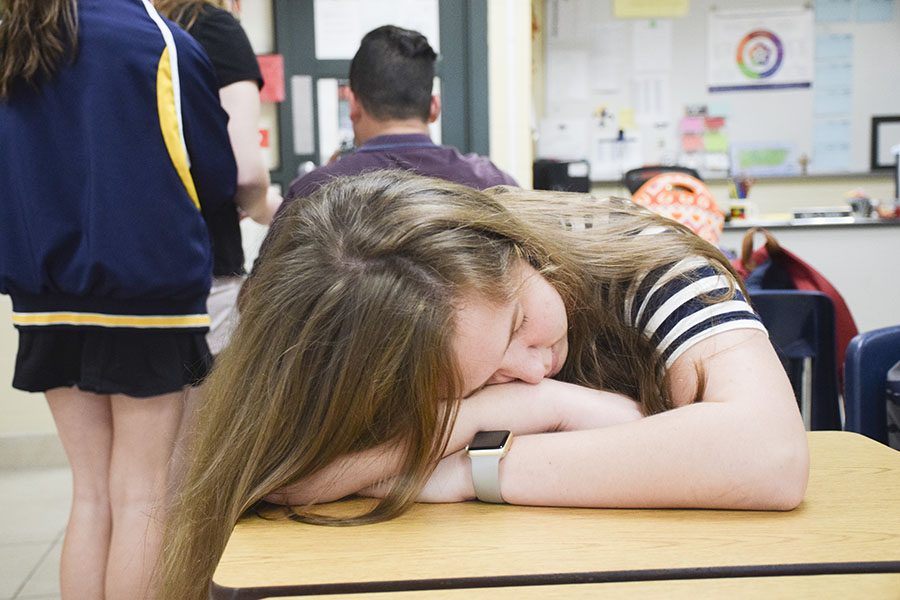Walking through the quad, you can hear the groans and complaints of tired Trinity students.
“Last night I was up until one in the morning” freshman Libby Guile said. “I had to study for three tests and do my homework assignments.”
Getting enough sleep is vital to people of all ages. The average teenager needs eight to ten hours of sleep, but many students barely manage to get six or seven.
Sleep is food for your brain. It helps to manage stress and can increase your ability to learn and listen. Not getting enough can lead to confusion, sleep-induced depression and drowsiness. For example, tired drivers who fall asleep at the wheel cause more than 100,000 accidents a year. This is about half as many accidents as teens who drink and drive.
According to the National Sleep Foundation, only around 15% of teens say that they get eight and a half hours, the recommended amount of sleep for teens, of sleep per night.
“I barely get to sleep at all,” Guile said. “I’m so stressed, and I have a lot of work, so I only get four to five hours a night.”
Students often blame homework and school for their lack of rest, accusing their teachers of giving hours of assignments per night.
Participating in sports and extracurricular events is another reason why students lose hours of sleep.
A normal sports practice at Trinity ends at around 5:30, but some varsity sport practices don’t end until later, and games can last for an entire afternoon for both middle and upper school students.
This causes student-athetes to arrive home at 8:30, or later, leaving them with only a few hours until they should be going to sleep to get enough hours of rest.
Although school is often blamed for lack of sleep, sleep deprivation can also be due to students losing track of time and procrastinating. For some, sleep isn’t a priority at all. Getting distracted from homework is easy when Netflix is available. Games and social media, including Instagram, Snapchat and Twitter, can lead to hours of mindlessly scrolling through pictures.
With so much technology available to Trinity students, distractions are easy to find. Most social media outlets have websites that can be seen on laptops. There are games that can be downloaded onto computers which can be played without an internet connection and in a small window on a computer screen. Some Macbooks have the capability to use iMessage, giving students a way to text in class.
These applications and sites not only lead to distraction at home, but also at school. Study hall, a vital time for busy students, can be very unproductive. Although teachers encourage students to work, a quick glance at a peer’s computer screen can display games and online shops.
But there are methods that can be taken to combat this sleep deprivation problem. Time management is very important for students who need to finish work quickly and effectively.
One of the easiest ways to block distractions and stay focused is to download a site blocker, a program that limits the amount of time a website or application can be open on a computer.
Although many students may be reluctant to blocking websites, these programs can be very helpful for productivity. Instead of wasting hours watching YouTube videos and playing Octagon, time could be spent studying or working on an assignment.
It has been proven that teenagers often have more energy during the night and less in the morning, which leads to late bedtimes. Many teens feel tired in the middle of the day too, which has led doctors to advocate for later school start times.
According to the Center for Disease Control and Prevention, a later start in school time leads to fewer tardies and more energetic students. Seven schools in other states changed their start time to 8:30, and it was recorded that students were more alert, and sleep-induced depression rates went down.
Students are always complaining about exhaustion and stress while at school and at their activities. Getting sleep can lead to a healthier mind and body, and it sets the biological clock on track.















